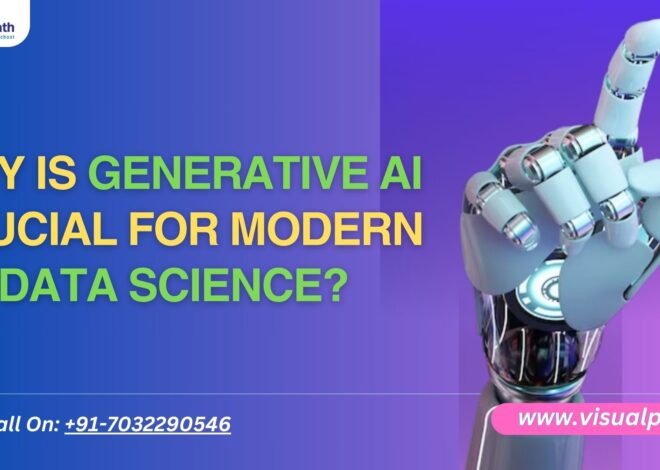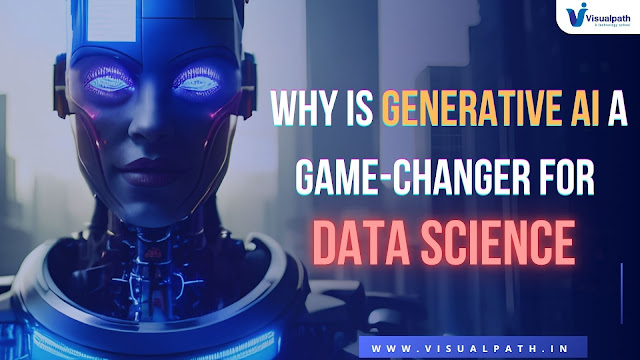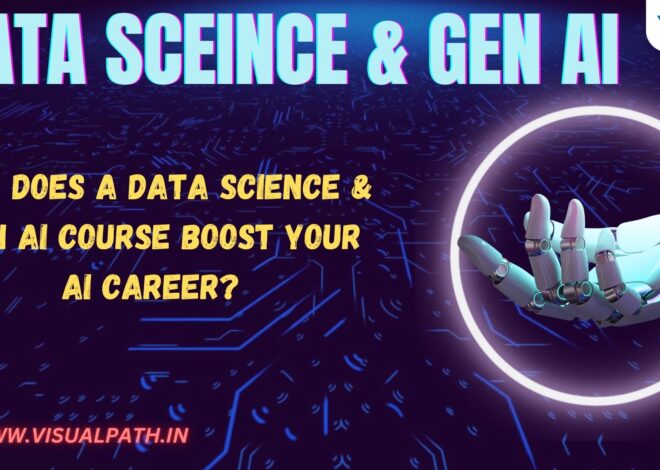Introduction
Data Science with Generative AI Course In the era of big data, having access to high-quality datasets is crucial for building effective machine learning models. However, acquiring and preparing these datasets can be time-consuming and expensive. This is where Generative AI comes into play, offering a powerful tool for data synthesis. By generating synthetic data that mimics real-world scenarios, Generative AI helps overcome the limitations of limited or imbalanced datasets, but it also presents unique challenges. Data Science Training in Hyderabad
Applications of Generative AI in Data Synthesis
- Augmenting Small Datasets: Generative AI can create synthetic data to augment small or rare datasets, enabling machine learning models to be trained on a broader range of scenarios. This is particularly useful in fields like healthcare, where obtaining large amounts of patient data can be challenging.
- Balancing Imbalanced Datasets: In situations where certain classes in a dataset are underrepresented, Generative AI can be used to generate additional examples of these minority classes, leading to more balanced and robust models. This is vital in applications like fraud detection, where fraudulent cases are far fewer than legitimate ones.
- Enhancing Data Privacy: By generating synthetic data that closely resembles sensitive data, Generative AI can be used to share information without compromising privacy. This synthetic data can be used for research or product development without exposing real user data, making it valuable in industries with strict data privacy regulations.
- Testing and Validation: Synthetic data generated by Generative AI can be used to test and validate machine learning models, providing a controlled environment where the models can be assessed against a wide variety of scenarios, including edge cases that may not be present in the original dataset.
Challenges of Generative AI in Data Synthesis
- Ensuring Data Authenticity: One of the major challenges in using Generative AI for data synthesis is ensuring that the synthetic data is sufficiently realistic. If the generated data does not accurately represent the characteristics of real-world data, it can lead to poor model performance.
- Bias Amplification: Generative AI models can inadvertently learn and amplify biases present in the training data. This can lead to the generation of biased synthetic data, which in turn can skew the outcomes of machine learning models.
- Computational Resources: Generating high-quality synthetic data using Generative AI often requires significant computational resources. This can be a limiting factor for smaller organizations with limited access to advanced hardware.
- Ethical and Legal Concerns: The use of synthetic data raises ethical and legal questions, particularly in cases where the synthetic data closely resembles real individuals. Ensuring that synthetic data is used responsibly and in compliance with regulations is crucial. Data Science Training Institutes in Hyderabad
Conclusion
Generative AI offers a powerful solution for data synthesis, with applications ranging from augmenting small datasets to enhancing data privacy. However, the challenges it presents, such as ensuring data authenticity and avoiding bias amplification, must be carefully managed. As Generative AI continues to evolve, it holds the potential to revolutionize data synthesis, provided these challenges are addressed with diligence and responsibility.
Visualpath is the Leading and Best Institute for learning in Hyderabad. We provide Data Science Training Institutes in Hyderabad you will get the best course at an affordable cost.
Attend Free Demo
Call on – +91-9989971070
WhatsApp: https://www.whatsapp.com/catalog/919989971070/
Visit: https://visualpath.in/data-science-with-generative-ai-online-training.html




